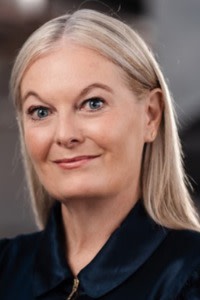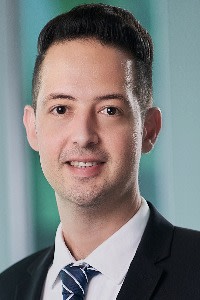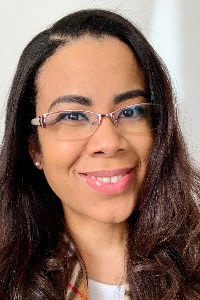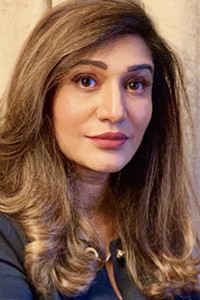What I learnt from my Executive MBA
Roula Khalaf, Editor of the FT, selects her favourite stories in this weekly newsletter.
Julie Driscoll
British. Imperial College Business School, graduated 2018. Chief executive, Olympia London, UK

Why did you decide to study for an EMBA?
I was in a senior leadership position within a global media business and wanted to become a chief executive. I was self-aware enough to know I had knowledge gaps, such as how to craft a compelling shareholder relationship management strategy or valuing companies for M&A. An EMBA was the best way to address this.
Imperial’s programme offers a range of courses from corporate finance to macroeconomics. The course gave me what I needed. I gained deep knowledge in areas so I can sit in any boardroom with confidence. The mentoring and coaching that I received during the EMBA also taught me that being an authentic, dynamic leader at the top of your game requires continual work. I have a coach and am a life-long learner.
The course also supercharged my career journey. I was able to progress into my current role and now have the tools to apply the very latest thinking and strategic frameworks, helping me to drive significant growth.
Antonie Jagga
South African. NUS (National University of Singapore), graduated 2023. Actuarial partner, PwC Australia, Sydney

How did the EMBA change you?
I have a more mature approach to problem solving and dealing with different personalities. On the programme, you’ve got 50 people, who are very senior and accomplished. Those people are used to getting their own way. But, in the classroom, we are just students, working together with perspectives to share. I now listen more and respect that people have different perspectives. Just because a view differs from yours does not mean it is wrong, it’s that they come from a different background. I’ve always felt that I’ve been good at those things — balancing perspectives, diversity and different views — but, as you get more senior, you naturally get less of that challenge.
Being in this class makes you take that step back and say, “Actually, I could be better at asking for perspectives and more open to learning from other people.” So I feel like it’s been an exercise in humility and I am coming out of it with a more open mind and growth mindset.
Isabelle Ugochukwu
French/British. Insead, graduates in 2024. Start-up co-founder, divides time between UK and France

What surprised you about the course?
How time-consuming it is. With a newborn, a toddler and no finance or economics background, I had to work hard to keep up. But I realised the power of leadership skills. Plenty of people on the course have amazing technical skills, but leadership is about bringing the future into the present and sharing a vision that people can be passionate about turning into a reality — that’s where my strengths lie. I didn’t expect the transformation to be so deep. The leadership development programme made me realise that I tend towards perfectionism because I grew up in a culture that humiliated children for making mistakes.
I learnt a lot about myself. My capacity for entrepreneurship surprised me. I thought the EMBA would accelerate my corporate career, but then a business idea happened and I am now a start-up co-founder. With the support of the Insead community, I’m able to — in a prudent way — throw some caution to the wind and see what happens next.
Uju Uzo-Ojinnaka
Nigerian. Ceibs (China Europe International Business School), graduated 2018. Founder/chief executive, Traders of Africa, Lagos

What was the most important lesson you took from the course?
The most important lesson was not just the knowledge I gained from the course, but also my contribution to it. I realised that the lessons went beyond the content given to us by the faculty at Ceibs — it was also from the collective input of the class.
Studying is not just about passively absorbing information from the lecturer — there is an interactive dynamic in the classroom that the lecturer facilitates. [You have to ask:] ‘What unique perspectives do I bring to class discussions to foster a more profound learning experience?’ This realisation also emphasises the idea that whatever role I play in the world, it is critical for me to bring something valuable to discussions.
It also aligns with my ethics and perspective: it’s important to me that relationships are driven by mutually beneficial insights, constructive feedback and shared depths of experiences.
Gia Mahmoud
American. Cornell: Johnson, graduated 2023. Vice-president, workplan development & resource management, National Grid, US

What are your tips for balancing a rigorous course with work?
I didn’t try to balance work, life and school. I integrated all three so I would not lose out on my daughter’s final soccer game or miss my class or homework time. I watched many of my daughter’s games sitting in the car and taking a class, or made lunch for my family while chatting with my team about an assignment. While you have to make sacrifices, the learning and relations you build outweigh the downsides.
Staying organised is critical. You have to prioritise: I use tools such as calendars and to-do lists and developed a study schedule. Getting up early and studying two hours before work helped me stay on course. I delegated tasks where possible and asked for support from colleagues and family. You have to remember to take breaks to relax and recharge. Stay motivated and remind yourself of the long-term benefits and goals you hope to achieve.
Comments